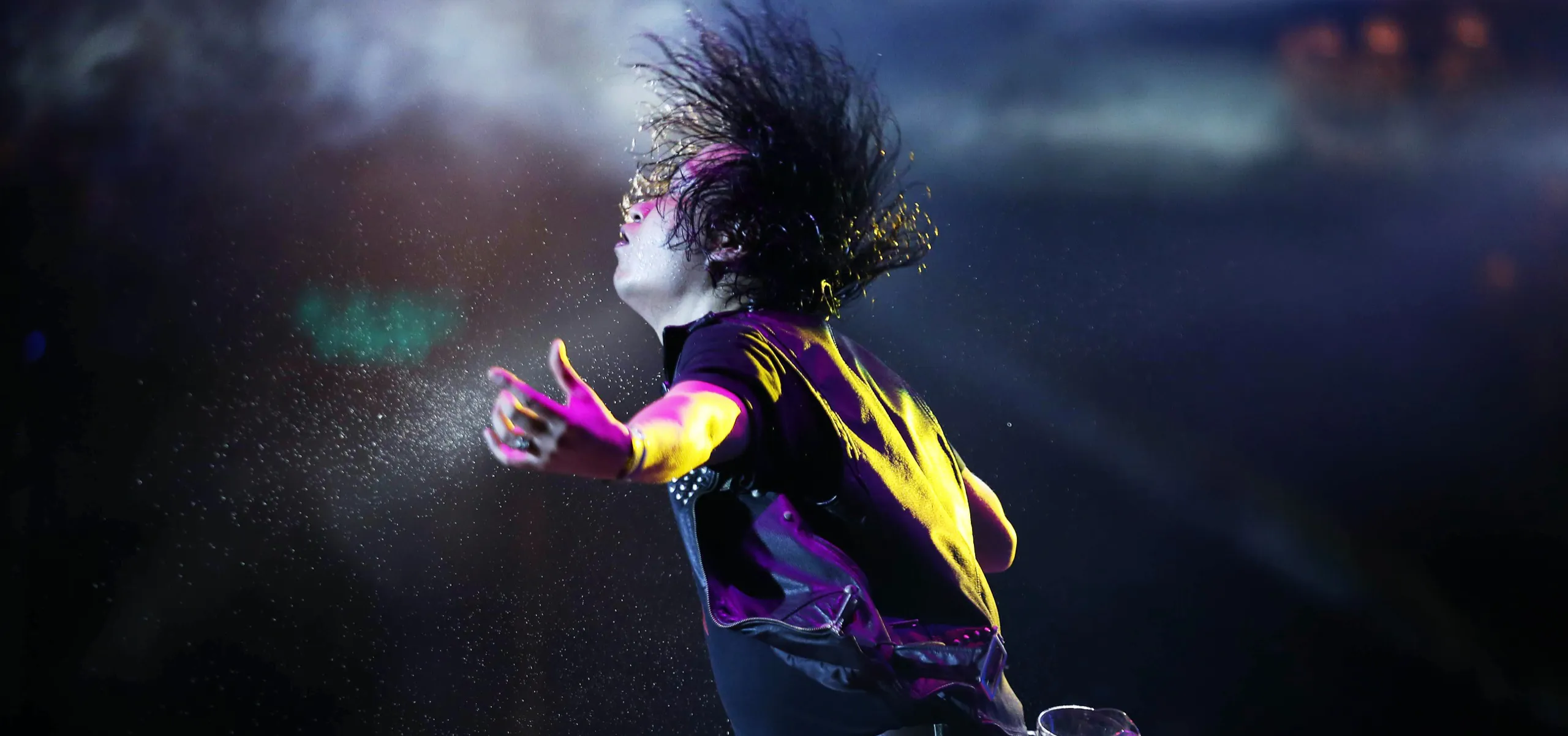Learn what it means to “emo” in Chinese internet-speak
When night falls, and most are tucked up in bed, a group of netizens emerge to reflect on the hardship of their (apparently) tragic lives. Miserable and lonely, or just looking to share their emotions, this group of people take to social media to write: “I emo-ed. (我emo了 Wǒ emo le).”
The term "emo" is taken from the music genre and subculture that emerged in the US in the 1980s and enjoyed some pomp in the 2000s. In the West, the term is associated with rock music emphasizing emotional expression, while also spawning its own style of dress, such as skinny jeans, straightened black hair, black eyeliner, piercings, studded belts, and dark color clothing. It is also a psychological state associated with angst, depression, and emotional sensitivity.
While emo fashion and culture don’t seem to have caught on in the offline world in China, netizens have recently adopted the word “emo” to express sadness, depression, and being emotional. It can be used as a verb, and is also retroactively said to be a contraction of “一个人默默地哭 (yí gè rén mòmò de kū, silently crying alone),” as “e” and “mo” sound similar to the characters “一” and “默.”
Triggering one’s “emo” is worryingly simple, with anxious young adults in modern China struggling under the heavy weight of work and family: “An adult can collapse in a flash (成年人的崩溃只在一瞬间 Chéngniánrén de bēngkuì zhǐ zài yí shùnjiān)” netizens say. Job worries, sickness, lousy weather, and even sad song lyrics can cause people to say, “我直接emo (Wǒ zhíjiē emo, I directly emo-ed)” or “我狠狠e一回mo (Wǒ hěnhěn e yì huí mo, I emo-ed severely).”
The dead of night seems to be a perfect time to “emo.” Just like Cinderella returned to her normal self as the clock struck twelve, when midnight approaches, those who pretend to laugh and put on a brave face in the day can finally release their emotions and “emo late at night (深夜emo shēnyè emo).”
These gloomy souls can’t resist a plaintive song , and their love of NetEase Cloud Music (网易云音乐 Wǎngyìyún Yīnyuè) has even earned the music streaming platform the nickname “NetEmo” or “NetEase Depression Cloud (网抑云 Wǎngyìyún)” as the characters “易” and “抑” are homophones.
Opening the streaming app, loading up their favorite melancholy tunes, and confessing their emotions in the comment sections underneath the songs, they begin “late-night NetEmo time (深夜网抑云 shēnyè Wǎngyìyún).” “It’s time brothers, cry now (到点了兄弟们,给我哭 Dàodiǎn le xiōngdìmen, gěi wǒ kū)!” comments often say.
NetEase Cloud is known for its interactive commenting function. People often share their personal hardships, emotional setbacks, and even suicidal thoughts in the comments, though the degree of sadness varies:
“I’m fine, just a little bit sad (我没事,只是有点难过 Wǒ méishì, zhǐshì yǒudiǎn nánguò).”
“My grades are getting worse, and I feel I’m about to become depressed. What should I do (成绩越来越差,感觉快要抑郁了,我该怎么办 Chéngjì yuè lái yuè chà, gǎnjué kuàiyào yìyù le, wǒ gāi zěnme bàn)?”
“I found out that there really can be two people who like each other, miss each other, can't forget each other, but can’t be together (后来我发现,原来真的会有两个人,互相喜欢,互相惦念,互相忘不掉,却没有在一起 Hòulái wǒ fāxiàn, yuánlái zhēn de huì yǒu liǎng gè rén, hùxiāng xǐhuān, hùxiāng diànniàn, hùxiāng wàng bú diào, què méiyǒu zài yìqǐ).”
Predictably, breakup songs attract the most emo feedback. Tunes like Write to Huanghua(《写给黄淮》), Exclusive Memory (《独家记忆》), and If I Were Young (《年少有为》), have all received hundreds of thousands of (mostly sad) comments. Playlists featuring singers like Xue Zhiqian, Mao Buyi, or Liang Jingru, all masters of tearjerking ballads, also attract countless emo confessions.
The morose atmosphere that seems to haunt the app has attracted much discussion from its users, particularly during 2020 when the Covid-19 pandemic was at its height in China, with worries that the platform had been enabling mental health conditions like depression. Others, however, believe many of the comments are not genuine but aimed only at getting attention. Users ridicule some of the more mawkish comments by saying: “This is a typical NetEmo expert (一看就是老网抑云了 Yí kàn jiùshì lǎo Wǎngyìyún le).”
Some have even accused supposedly depressed netizens and NetEase itself of “selling misery (卖惨 mài cǎn)” to gain attention or boost users, as certain sad tales are copy-and-pasted in multiple comment sections. Netizens also use this phrase to mock themselves when they post about their own misery.
In response to the heated discussion about the platform’s role in feeding depressive souls, NetEase launched a “Cloud Community Comment Healing Plan (云村评论治愈计划 Yúncūn pínglùn zhìyù jìhuà)” in August 2020, which involves a team of 10,000 volunteers and professionals ready to reach out to users who post suicidal comments. It also aims to crackdown on what the platform called “fake” messages that just aim to get attention, and malicious attacks made against users who express their emotions. Violations of these rules, the platform announced, will lead to a ban on commenting or even the termination of accounts.
But distinguishing the real emos from the fake is no easy task, and banning or reprimanding genuinely depressed users could have worrying repercussions. The platform’s response was to launch a “hug bonus (抱抱彩蛋 bàobào cǎidàn)” function that allows users to post virtual hugs on comments they believe are real and worthy of “love.”
At the least, the platform its a place where netizens can channel their inner emo in the comforting knowledge that they are not alone in needing a good cry in the dead of night. After all, misery does love company.












